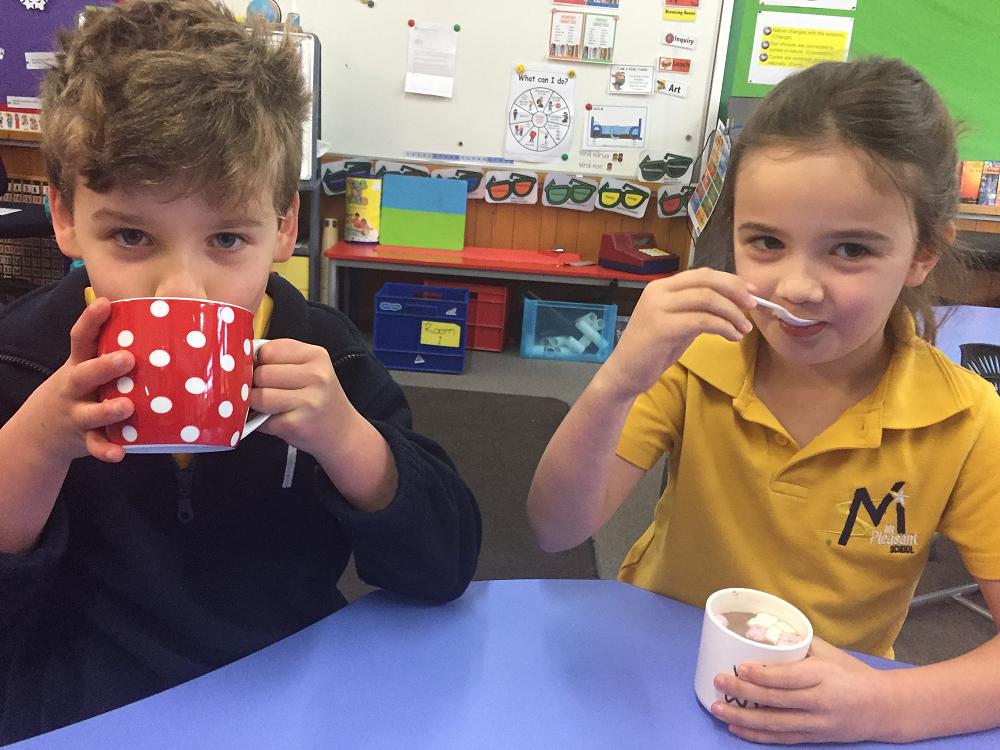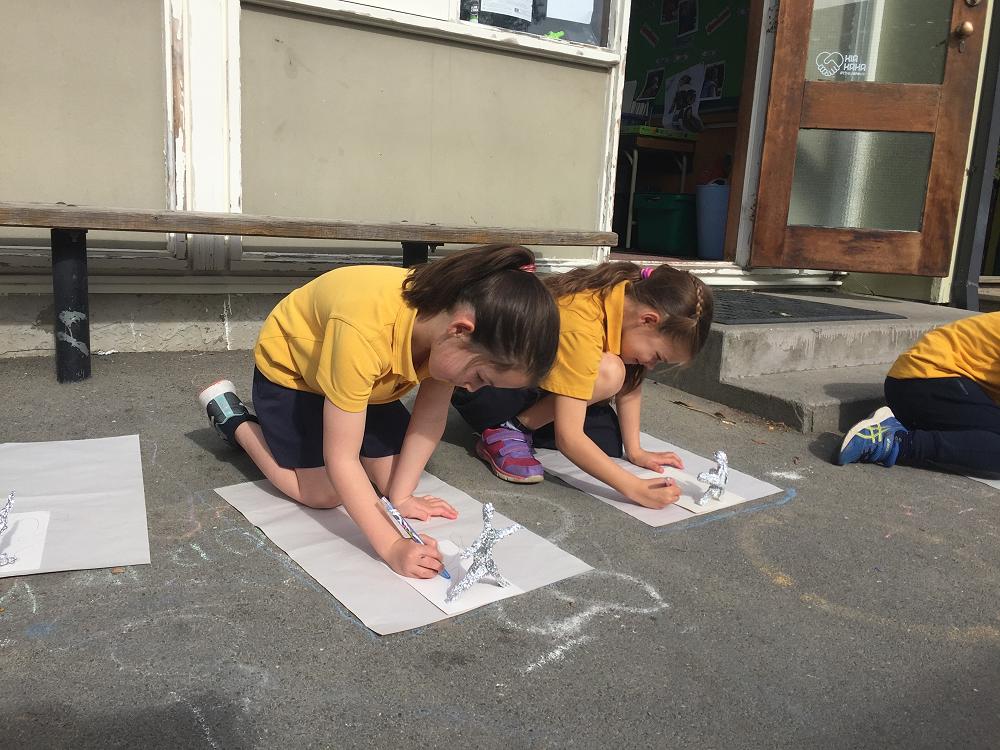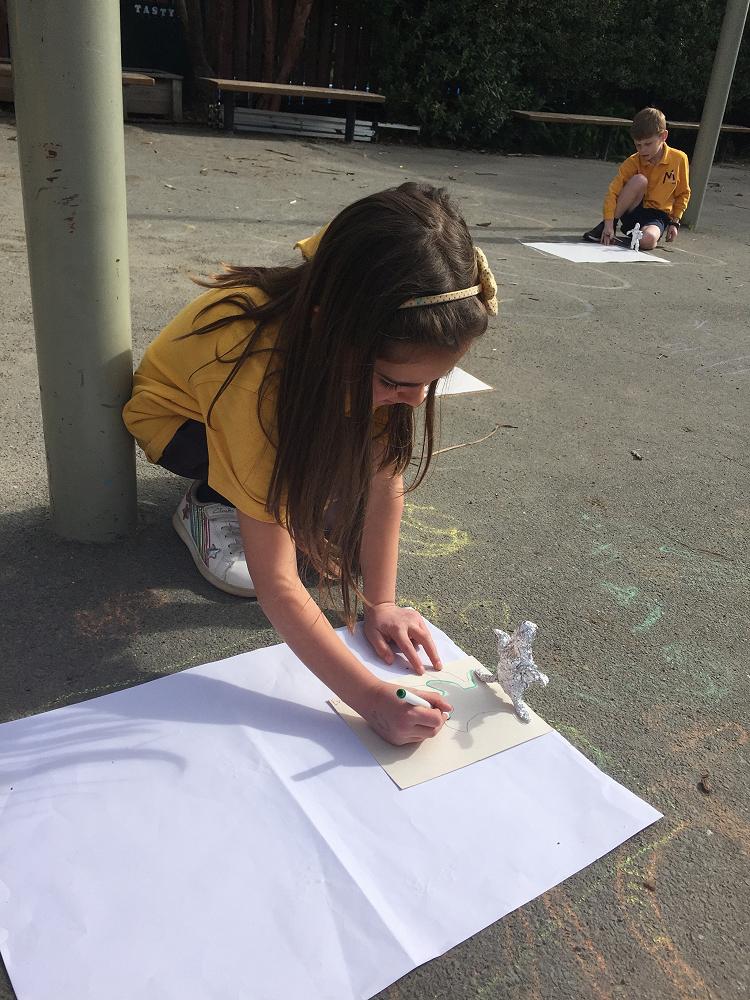
Our Learning: TTO tuned into nature
🌏 Earth's natural cycles affect living things.
This term, Rooms 1 and 2 have been investigating cycles in nature through the transdisciplinary theme of ‘How The World Works’.
How the World Works:
An inquiry into the natural world and its laws; the interaction between the natural world (physical and biological) and human societies; how humans use their understanding of scientific principles; the impact of scientific and technological advances on society and on the environment.
Using the central idea of ‘Earth’s natural cycles affect living things’, we have been exploring the lines of inquiry:
Nature changes with the seasons. (Change)
Our choices are connected to cycles in nature. (Connection)
Cycles are continual and happen naturally. (Form)
This unit began with the children enjoying a hot chocolate on a cold morning at school. Not only was this delicious, but it began the discussion around what other foods we enjoy having when it is cold? As well as: Why is it cold?

The children identified the seasons and began exploring how the seasons impact on us. They quickly made the connection that food, clothing and our activities are affected by the seasonal cycle. We had a fun afternoon where the children dressed up to represent a season.
The children then became curious about what causes the seasons. During a class discussion, some clever, creative and imaginative ideas were shared:
“What causes the seasons?”
The gods of weather create seasons
We have seasons because peoples birthday are on them.
Seasons show there is a hot time coming or a cold time coming.
Without seasons it would be dark and cold.
It has something to do with the sun warming us up.
The Earth goes round the sun, in summer the days get longer because the Earth moves slower, the Earth moves faster in winter.
The Earth moves around and gets a little bit of sun each day.
The sun doesn’t move, the Earth moves and Earth twists, the moon moves around.
The clouds and the sun make the seasons
God makes the seasons
After watching some YouTube clips showing and explaining the seasonal cycle, the children were then able to demonstrate their learning using balls to represent the earth and the sun.
The children were curious about the earth moving. The teachers then posed the wondering… How can we prove the earth is moving? After a visit outside to see if we could view the earth moving, the children became interested in their shadows.

We spent an afternoon creating a mini tinfoil person and mounting them on paper. On Friday - when the sun was out, the children traced the shadow of their person onto paper. Three times during the day, they returned to trace again. Much to their surprise, the shadows had moved! There was a lot of discussion around this and with much excitement, it was declared we had proof!

In the next few weeks, we are going to inquire into how cycles affect other living things, such as animals and plants.
Our learning through inquiry has spread into our reading, writing and art programmes. Look out for Room 2’s beautiful ‘Me and my Shadow” drawings at the upcoming Art Exhibition.
